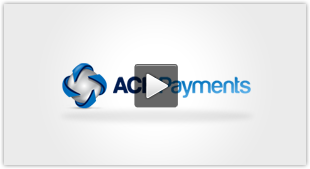ACH Recurring Providers offer a reliable solution for businesses that require a consistent and streamlined method for collecting payments.
As a pivotal component of the modern financial landscape, ACH transactions facilitate the electronic movement of money between bank accounts, making it a secure and efficient way to handle recurring payments.
This payment method is particularly beneficial for small businesses that operate on a subscription-based model or that need to manage regular billing cycles. It allows them to reduce the administrative burden of manual billing, ensuring timely and predictable cash flow.

ACH Recurring Providers specialize in services that automate the billing process, allowing businesses to set up scheduled withdrawals from customers’ bank accounts for services rendered or for subscription fees.
This approach minimizes the risk of late or missed payments and enhances customer convenience, as it eliminates the need for clients to take action each billing period.
By incorporating ACH payments, businesses can focus on growth and customer service rather than financial administration.
Additionally, ACH recurring payment solutions often come with versatile integration options, making it easy for small businesses to incorporate them into their existing financial operations and customer relationship management systems.
They offer a range of tools and features designed to make the setup and management of recurring payments straightforward, including customizable payment plans and detailed transaction reports.
Through reliable and automated financial transaction processes, ACH recurring providers prove to be an indispensable ally for businesses looking to optimize their billing and subscription services.
Understanding ACH and Its Benefits for Recurring Payments

Automated Clearing House (ACH) is a secure payment system that allows for the electronic transfer of money between bank accounts in the US. ACH processing is overseen by NACHA and is commonly used for recurring billing, enabling businesses to collect monthly fees efficiently and helping manage cash flow.
Key Features of ACH Processing
ACH transactions are known for their low cost and reliability.
Unlike credit card processing, which typically involves higher transaction fees, ACH payments often have lower fees, making them a cost-effective option for businesses and customers alike.
Here are some specific features:
- Direct Bank Account Debits: ACH directly debits customer bank accounts, which can reduce payment gateway fees.
- Recurring Billing: Automatic scheduling of payments helps in maintaining consistent cash flow.
- High Security: ACH provides a level of security that is managed by strict NACHA regulations.
Comparing ACH to Other Payment Methods
When comparing ACH to other payment methods, several differences become apparent:
| Payment Method | Transaction Fee | Speed | Recurring Capability | Cash Flow Impact |
|---|---|---|---|---|
| ACH | Low | 1-2 business days | Excellent | Positive |
| Credit Card | High | Instantaneous | Good | Variable |
| Wire Transfer | High | Same-day | Poor | Negative (due to fees) |
ACH payment processing tends to be favored by businesses for its capability to smoothly handle recurring billing with minimal fees, directly impacting cash flow positively by having a lower monthly fee structure compared to options like credit card payments.
On the downside, ACH payments have a slower processing time compared to instant credit card payments. However, the predictability of ACH payment processing can aid businesses in managing their finances more effectively.
Choosing the Best ACH Recurring Payment Provider

Selecting the most suitable ACH Recurring Providers is integral for businesses aiming to streamline their billing processes. It requires a thorough assessment of criteria such as service features, fees, and customer support.
Essential Criteria for Selecting a Provider
Service Compatibility: The provider must offer an API that easily integrates with existing accounting software and merchant accounts.
Processing Fees: Understand the fee structure for transactions.
Customer Support: Reliable customer support is crucial. A provider should offer multiple support channels for quickly resolving issues.
Security & Fraud Protection: Strong security protocols and fraud detection mechanisms are non-negotiable to protect sensitive financial data.
Recurring Billing Features: Providers should offer customizable options for billing cycles, prorations, and notifications, ensuring flexibility in how businesses manage payments.
Reputation & Value: Consider the provider’s reputation in the market and analyze customer reviews.








